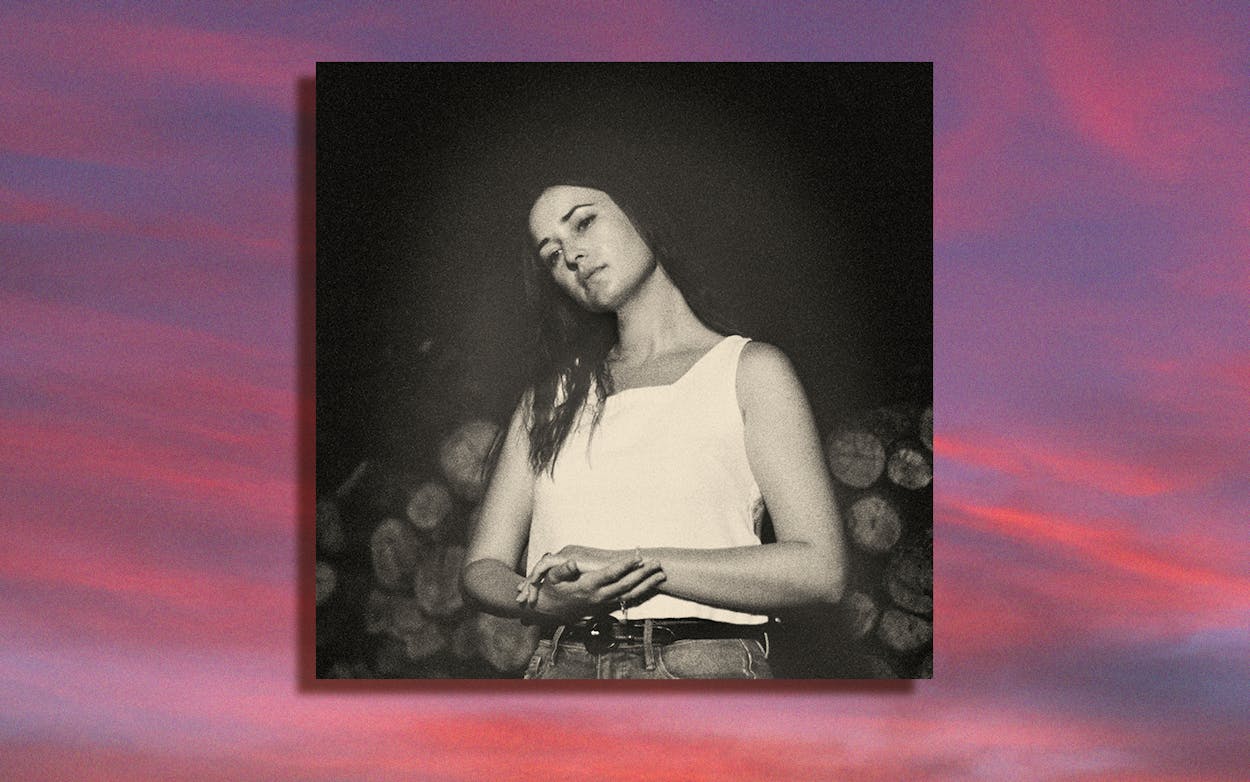Jess Williamson is slowly making her way back home—if not in person, then certainly through her music. The Los Angeles-based singer-songwriter was born and raised in the Dallas suburb of Flower Mound, where she rebelled against her parents’ love of country music by embracing the pop-punk of bands like Blink-182. Like most of us do, she eventually realized her parents were right and fell deeply in love with the likes of Townes Van Zandt and Willie Nelson while studying photojournalism at UT-Austin. Hers was an immersive education, spent playing shows around town and trying to identify a singular sound that felt true to her. Early releases like Native State and Heart Song dabbled in lo-fi folk and Americana; by her 2018 album, Cosmic Wink, Williamson was paying tribute to the seventies psychedelic pop made famous by the scene in Laurel Canyon.
With her fourth LP, Sorceress, Williamson revisits her country roots, blending traditional Texas storytelling with raw, intimate confessions and dreamy, synth-led ballads. She wrote the album in Los Angeles and recorded it in Brooklyn and Dripping Springs, but the themes and inspiration rest solely in her homeland. “The whole time I was in New York, there was a lot happening that was experimental and new for me that I was excited about,” Williamson says. “But I also had a feeling that I was going to have to take the album to Texas and finish it there, because that’s where my roots are.” The result is a beautiful addition to the growing canon of eclectic alt-country music inspired by the Lone Star State. Williamson spoke with Texas Monthly about how her sound has evolved, what being Texan means to her, and what it’s like to release an album during a pandemic.
The album sounds and feels like a Texas album. Do you feel still connected to this state in your musical journey, or have you moved on?
No, Texas is home, and I dream of returning. My dream for so long has been to eventually move back to Texas and live somewhere outside of Austin on a little bit of land and grow food and have a bunch of animals. After recording for a few weeks in Brooklyn, I realized the album wasn’t finished, so I called up Dan Duszynski, who has a home recording studio in Dripping Springs. It’s the same place where I made all of Cosmic Wink, my last record. It was a really immersive experience, just going song by song with Dan and being like, “All right, here’s what I’m liking, here’s what I’m not liking. What are you hearing?”
What’s it like putting out an album at a time like this?
It’s helping me appreciate what really, really matters, which is I made music that I’m really proud of, that I’m excited to put into the world. The people that need to hear it are going to hear it and have a relationship with it and be impacted by it in some way. It’s not really about me and what I get out of this anymore, or if I get to experience success or something. It’s showing me what really matters, which is the music. People can still hear it.
Even though Texas country music is more progressive, politically, than traditional country music, it still has felt like a boys club for so many years. Where do you see yourself fitting in to that world?
I would just feel so happy to be included in a conversation about Texas country music. I think that my music can be confusing for people because each of my records is pretty different from the others. I started off rooted in a folk tradition, and then that morphed into more of a heavier live band sound. And then my last record was a little more sixties and psychedelic, still folky but a little more into rock. With this album, I’m bringing in the country elements in a more significant way. But there’s also some more pop elements that I’ve never worked with before.
Are these genre concerns something that you’re actively thinking about as you write and record, or is it more after the fact that you reflect on them?
Now, it’s more intentional. With this record, I had experimented enough and made enough records and thought enough about music that I was finally ready to be really clear going into the studio with this album. I wanted it to be a record where I felt like nothing was off limits. I wanted to bring in some pop elements that I’d never worked with before, like programmed drums. I wanted the sonic quality to be really hi-fi. I wanted it to be a well-recorded, crystal-clear record that you could turn up loud.
In your opinion, what about this album feels like a quintessential Texas record?
There’s an energy to this record that feels very me. I felt really comfortable with knowing exactly what I wanted and communicating that to the people I was working with and not giving up until every song felt like the most authentic version of what I was trying to communicate. And I think what comes through on this record is that it’s very me. There are elements of the music that I grew up on, like bringing in the pedal steel guitar and the way that some of the songs are structured to frame them as country songs. Because I’m a Texan, and I grew up there, it’s got such a big place in my heart. I hope you can hear that on the record.
This interview has been edited for clarity and length.
- More About:
- Music
- Country Music
- Flower Mound






